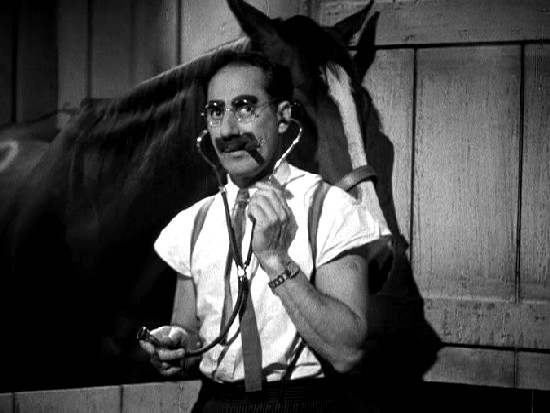Here are a range of different everyday experiences. How might you feel in each of these circumstances?
- You are having your family to stay for Christmas
- Your partner of the last twenty years announces they are leaving you for your best friend (you might feel relief!)
- You go to hospital for a major and risky procedure (trying to find a parking spot?)
- You are about to give a public presentation with your Boss in the audience
It is easy to imagine a range of reactions to these life events or experiences and a review of the popular literature suggests they can be all summed up by the word ‘stress’.
The implications of stress needing a ‘cure’
This view that stress requires a cure is a very common one and has lead to a situation where many different approaches have been proposed or are currently marketed.
Scientific approaches
There are the Scientific approaches such as the use of drug therapies to control anxiety or depression. Prozac is a particularly popular example in this category. A drug that is seen by some in society as providing the crutch that helps them deal with the daily grind of life. A second major scientific approach can be seen in the psychological therapies such as cognitive behaviour therapy which addresses the reasoning and appraisal processes that may be related to dysfunctional behaviour.
Alternative approaches
There are countless alternative approaches to the problem that enjoy varying levels of scientific and popular support such as aromatherapy and laughter therapy. The ABC, of course, recommends doing a Sigrid Thornton, and packing up your frazzled city life and moving to an alternative diet-stress bucolic country life.
Consumer therapies
If of course, your taste or budget does not run to giving it all up, salvation may be at hand in your own bathroom, bedroom or kitchen via the purchase of any manner of contrivances such as bubble baths, massage oils or low stress foods all guaranteed to address your stress!
What is a myth?
The Oxford Shorter Dictionary defines myth as “a widely held (esp. untrue or discredited popular) story or belief; a misconception, a misrepresentation of the truth”
When I use the term ‘myth’ I am not using it in its strongest form to mean an untruth, rather something that is commonly believed that may be a misrepresentation of the truth. Many of the myths identified deserve more rigorous investigation. Some of the myths are controversial in the sense that large bodies of evidence have been presented in their support. However, even in such cases, there are reasonable grounds to be cautious due to a variety of conceptual and methodological shortcomings.
Myth 1: Stress causes illness
It is a commonly held belief that stress leads to illness. A survey of 114 adults in the UK in the late eighties and found that stress was commonly believed to be associated with heart attacks and nervous breakdowns. There is little reason to think that these commonly held beliefs have changed much since then. Here is just a tiny fraction of the evidence.
Stress and coronary heart disease (CHD)
Evidence of the link between stress and coronary heart disease is also confused and beset with methodological difficulties. It is commonly believed that high work demands lead to stress and CHD, but this doesn’t appear to be the case. In a recent review of 25 studies, 17 of the 25 studies showed an association between job control and CHD, but only 8 of the studies showed an association between job demands and CHD.
Stress and breast cancer
Another apparently commonly held belief is that stressful events are associated with the onset of breast cancer. Baghurst et al (1992) found that 40% of South Australian women surveyed believed this. Futhermore Steptoe & Wardle (1994) reported that almost half a sample of medical experts were either undecided or confident that stress caused breast cancer.
There are published studies supporting this link, however equally there are many studies that have failed to confirm this link. Even the recent study finding a link concluded that ‘the results speak against the conventional wisdom that .. Stress factors influence the development of breast cancer”
While some links seem to be weak, contrary or non-existent such as the link between stress and work demands, or stress and breast cancer, there does seem to be some evidence linking stress to job control and CHD.
Myth number 2: Executive stress causes Coronary Heart Disease
Myth number 2 seems to be a little easier to nail as a just plain wrong! Despite the widespread view, even seen in Medical reference texts as recently as the 1980s, that executives are more prone to stress it is almost certainly wrong, and indeed probably precisely opposite to the truth.
A major UK study measured new cases of angina, severe pain across the chest, and diagnosed ischaemic heart disease in 10, 308 senior and junior ranking British Civil Servants and found precisely the opposite relationship – that those occupying the lower ranks in the organisation were far more likely to be experiencing stress than their more senior colleagues.
Indeed in a related earlier study by the same team, they found males in the junior ranks of the civil service to have 3 times the 10 year risk of coronary mortality compared to their senior counterparts.
Perhaps the ultimate Executives –are the various prime ministers and presidents around the world. A quick comparison of the UK, USA and Australia shows that if they can avoid assignations in the US, foot in mouth disease in the UK or swimming outside the flags in Australia, they tend to live a lot longer than their male counterparts see figure 1.
Figure 1 Longevity of Prime Ministers and Presidents born and dying around C20th compared to average male life expectency during the century: UK, USA and Australia
This comparison, also holds for Prime Ministers and Presidents born in the 19th century. Clearly this elite group differ on a range of factors including wealth, education, social support, access to health care and so on, but these types of differences are also found when comparing CEOs and their employees.
Myth No 3: People respond differently to stress as a result of differences in personality
There is some good evidence to suggest that people vary in their experience of stressors, both in terms of whether a stimuli is perceived as stressful and the perceived intensity of the stressor. (So two people subject to the same nasty boss might perceive it as a nuisance or really stressful). However there is little good evidence that their reactions differ greatly (ie both may people might experience similar increases in blood pressure when the boss is around).
Myth No 4: That stress can be measured by a simple questionnaire scale
It is a seductive proposition for many people whether they are purchasing the services of a consultant to conduct a stress audit in their organisation or whether they are completing a check list in a magazine or training course to believe that these scales will somehow provide an accurate measure of your levels of stress.
There are many measures of stress. These range from inventories of psychological or physical symptoms, life event check-lists and scales assessing the number or intensity of stressors in the work environment. These are assessing diverse and often different factors which come under the umbrella term of stress, but cannot be said to be measuring ‘stress’ itself. A measure which actually asks people directly to rate their level of stress is open to a wide range of different interpretations and is therefore not meaningful. Thus, even the measure known called ‘The Perceived Stress Scale’ mentions the word stress only once! In fact, it is doubtful that it is possible to develop a valid or reliable questionnaire of anything like reasonable length that will really encompass everything that different people mean when they to ‘stress’. However there are varyingly accurate and reliable measures of more defined concepts such as anxiety or depression.
Myth No 5: Stress can be cured or managed through relaxation, meditation and exercise
There is some reason to believe that some interventions may have some beneficial effect – both exercise and stress management courses can lead to improvements in mood and physiological indicators. We do not know the mechanisms for these effects, that may work because you are taking time out of your schedule to relax or are thinking of other things. If so, it may be that expensive courses are not required: a regular walk with the family dog of an evening, or a hot bath away from the children may have the same effect. Alternatively it could be that just having a person taking an interest in your problems helps. Nor do we know how long such mood effects last. Furthermore, while some interventions can be shown to have benefits, it is not entirely clear that this has anything to do with improved ability to manage in the face of stressors.
Myth No 6: Stress can be cured by changing the way we work
The idea of preventing stress by removing the stressors (e.g. by reducing job demands and increasing job control) is certainly logical and has moral and ethical advantages over the alternative of training people to tolerate stressful environments. However, the evidence we have suggests that these interventions seldom work.
In a recent study, 2 matched pairs of departments were compared. In the work redesign group the employers participated in problem solving committees that identified workload and communication as key stressors. They developed plans to address these issues. The other (control) group did nothing. One year later the departments that had attempted change showed no improvement over the control group and in some cases negative results.
There were several mitigating factors such as a change in personal and other organisation wide changes that impacted upon the workers in the study which only serves to underline the difficulties in implementing these types of solutions.
Myth No 7: Stress is increasing
It is fitting to conclude the list of myths with this one, as this is perhaps the most popular starting point for many stress management programs and newspaper articles on stress. We have all read about the ‘increasing pace of life’, the ‘increased job insecurity’, the ‘lack of the old certainties’ etc etc. However, those few commentators that actually try to justify such remarks generally turn to figures for compensation claims and the like. However, whether such figures genuinely represent a rising tide of stress problems or merely increasing awareness of both the concept of stress and the availability of compensation is difficult to determine
Typically this myth is established by listing a variety of stressors from modern life, but how can we compare the impact of the telephone ringing all day with the risk of infectious disease or infant mortality (both of which are lower today). It is a bit like trying to determine whether Bath Ruth is better than Sammy Sosa, whether Bradman’s 1948 Invincibles Cricket Team was better or worse than Steve Waugh’s team, or whether Dixon of Dock Green was better than The Bill! It is not to suggest that we experience less stress today than earlier generations, rather, it seems that comparisons between then and now are highly likely to be unreliable, and may lead to over simplistic theorising about the causes of stress based upon spurious comparisons with the past.
Adapted from my book Stress: myth, theory and research (also available in UK )co-authored with Dr Fiona Jones.
Note: This article is designed to encourage a critical consideration of what we think we believe. I acknowledge that research in this area has advanced since the book was written for instance in linking stress and CHD. However much remains remarkably similar.
Related Posts












Pingback: Tweets that mention The Seven Myths of Stress | The Factory -- Topsy.com